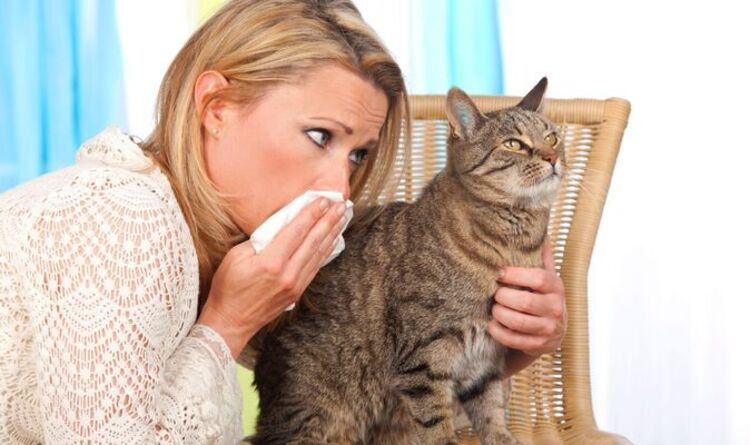It is believed around 15 percent of people suffer from allergies related to pets, with runny noses, red eyes and itching common symptoms. But plans are now in place to make hypoallergenic cats, meaning potential pet owners with allergies can rejoice at finally being able to be near their beloved feline friends.
Scientists have identified a so-called “sticky” protein named Fel d 1 as the main culprit – leading to between 60 and 90 percent of allergies.
The protein, mainly found in the skin and saliva of cats, sticks on fur when grooming.
Furthermore, the protein can spread in the air when the pet is shedding its coat during seasonal changes.
The introduction of a gene-editing tool named CRISPR, compared to a set of genetic “scissors”, may now be used to snip out the offending genes, according to tests carried out on spayed and neutered cats.
Should the test prove successful, potential pet owners could be purchasing genetically modified cats within five years.
Dr Nicole Brackett, who led the study for US research firm InBio, said: “Our technique does not just reduce symptoms…



































